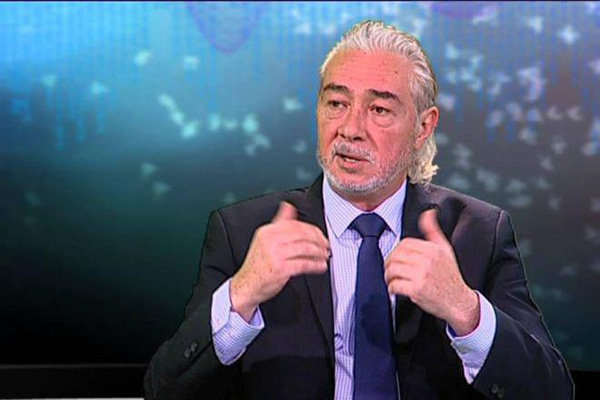Delivery of S-300 to Syria prevents Israel from assisting terrorists: Anzour

TEHRAN - Russia’s Ilyushin-20 military aircraft was shot down in western Syria with Russian S-200 by Syrian air defense forces and all 15 crew of the plane were killed.
The Russians pointed finger at Tel Aviv, after which the Zionist authorities handle the incident in any form they had. In this connection, the prime minister of Israel, Benjamin Netanyahu, sent the Russian Army Air Force commander, Major Nurkin, to Russia to provide the “documentation” to Tel Aviv on the incident, and after meeting with a number of Russian officials, last Friday returned to Tel Aviv.
The Zionists, for whatever purpose they did, did not know what the consequences would be for Tel Aviv. After the incident, the Russians were reluctant to announce the S-300 system to Damascus.
Syrian Deputy Parliament Speaker Najdat Anzour sat with the Mehr News Agency to discuss some of country’s the recent issues.
Q: Following the downing of the Russian plane in Syria, caused indirectly by the Zionist regime, Russia announced the delivery of the S-300 system to Syria. What are the reasons behind this shipment?
A: This is a natural change, within the framework of a solid and historic relationship between the allies fighting terrorism, especially between Syria and Russia. Such actions, which are among the most important collaborations, must be taken.
We also naturally understand the complexity of regional and international relations; in particular, the goal of every axis of resistance that fight against terrorism is to restore the balance of international relations by maintaining stability and defeating the policy of creating chaos under the control of the Americans.
Therefore, we are convinced that this development within the framework of relations is a huge transformation that greatly weakens the Zionist regime's ability to cooperate directly with the terrorist groups in Syria.
On the other hand, it directly restricts the enemy's ability to target Syria's scientific and research centers and private and traditional factories; when attacking these centers, the enemy claims that they belong to Hezbollah or Iran, and this is a ridiculous claim.
Iran and Hezbollah do not need factories in Syria. And naturally, the enemy seeks to target the complementary relationship between the elements of resistance from Iran to Iraq, Syria and Lebanon. This weapon (S-300) returned the Defense Forces to the Syrian Armed Forces that it had before 2011, and can greatly increase its ability.
Q: Israel has said that Russia's action is dangerous and will increase tensions in the region. What are possible reactions of Israel and the United States if Kremlin carries out the plan?
A: Every response and reaction from Tel Aviv are still failing, because their information has failed to assess the strength of the army and the Syrian people and leadership. To the extent that their research has signaled the fall of the Syrian government in less than a year, now the enemy's government is seeking to rectify its policy mistakes.
On the other hand, the enemy's axis is shaking. Meanwhile, the continuing unity between China, Russia, Iran and resistance’s allies is strengthening. Naturally, Iran is now overwhelmed than other countries. But after establishing the stability in Syria, Iran’s situation will also be much better, and all the efforts of the United States and Israel will lead to failure.
Q: What changes will the delivery of S-300 missile system to Syria bring about as far as the balance of power in the region is concerned?
A: Naturally, the United States and Israel are afraid of this move. Because their air forces were the factor behind their resistance to the countries of the axis of resistance, and when this unit fails, the balance of power is shaped much more with our interest in the field.
On the other hand, we need to increase our power in other fields, including economics, culture, education and media, and create a comprehensive development in dealing with Western plans and their memercenaries in the region, especially Israel.
